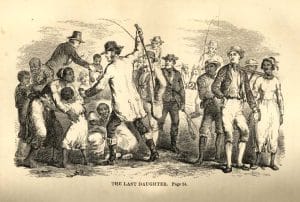Around 44 percent of LGBTQ youth in Pennsylvania have seriously considered suicide within the past year, and 14 percent have attempted it, according to a new report from The Trevor Project. This data comes from a state-level analysis of LGBTQ youth mental health, which surveyed 34,000 LGBTQ people aged 13 to 24 in all 50 states.
The survey highlights the mental health crisis that LGBTQ teens and young adults are currently facing in the U.S. and provides important insight into the struggles and hardships queer and transgender youth are dealing with in Pennsylvania. The report’s key findings reveal alarmingly high rates of depression, anxiety, and suicidality among LGBTQ youth, the highest percentages of which are among trans and nonbinary people.
While the report doesn’t pinpoint any particular causes for this increase in suicide risk that are specific to the state, it does provide data on corresponding factors that are negatively impacting the mental health and well-being of LGBTQ youth in Pennsylvania. The survey’s results found that 71 percent of LGBTQ youth in the state reported experiencing discrimination on the basis of gender identity or sexual orientation, while 34 percent of respondents admitted to being the targets of bias-motivated threats or physical harm.
This type of bullying and discrimination is being seen in public schools across Bucks County, particularly in Central Bucks School District (CBSD), which has become an epicenter of anti-LGBTQ attacks against students.
Casey Pick, a senior fellow for advocacy and government affairs at The Trevor Project, told the Bucks County Beacon that “research consistently finds that experiences of bullying, anti-LGBTQ discrimination and violence, and lack of social acceptance and support from family and friends are associated with higher rates of negative mental health outcomes and suicide risk.”
In addition, Pick says that “one key challenge” the data points to is that the majority of LGBTQ youth in the state reported being unable to gain access to mental health care, despite wanting to seek help. Among the top reasons why they were unable to gain access to this care, respondents cited being afraid to share their mental health concerns with another person, being reluctant to get their parent or guardian’s permission, and being afraid that their concerns wouldn’t be taken seriously.
READ: LGBTQ Pride And Prejudice In Bucks County
This state-level analysis comes amid an increasingly hostile social, cultural, and political environment in the U.S., in which the LGBTQ community has often become the target of threats, legislative attacks, and physical violence. According to Pick, the “broader context of the national political climate,” as well as the “anti-trans legislation and debates” that occurred earlier this year in Pennsylvania, are not the only factor, but can certainly contribute to negative mental health outcomes among queer and trans youth.
“Young people are listening and internalizing the negative messages they are seeing and we know that it’s harmful to their mental health,” Pick said. “We’ve been hearing from LGBTQ youth across our 24/7 crisis services who are expressing a wide range of emotions in response to these relentless and ongoing political attacks, from fear to anger to despair. It is absolutely vital that those with power and influence take into account the weight of words and actions that could have an impact on LGBTQ young people — and put a stop to this harmful and misleading rhetoric.”
This surge in hostility has also played out at the local level. In particular, Central Bucks School District has become embroiled in a number of anti-LGBTQ controversies in recent months, prompting the ACLU to file a complaint against the school district for creating a “hostile environment” and discriminating against LGBTQ students.
The ACLU’s complaint alleges that CBSD violated Title IX and the Equal Protection Clause of the 14th Amendment, citing the school district’s policies and directives banning books, censoring classroom materials, and instructing teachers not to use students’ correct names and pronouns, as well as the administration’s retaliation against teachers and staff members who have spoken out against these policies. The ACLU also alleges that these policies have led to an uptick in severe anti-LGBTQ bullying and harassment from fellow students, causing some LGBTQ students, especially trans students, to become afraid to use the bathroom or eat lunch in the cafeteria in order avoid to homophobic and transphobic encounters.
READ: What Does It Take To Be An Ally To Kids?
According to the 2021 Pennsylvania Youth Survey’s profile report of CBSD, obtained by the Bucks County Beacon, bullying on the basis of sexual orientation has increased by 122 percent since the previous two years and 116 percent on the basis of gender. Despite this, CBSD failed to mention this in their own summary of the data, which was presented at a meeting of the board of school directors last month, choosing only to highlight drug and alcohol abuse, anti-social behavior, and low commitment to schoolwork in their main areas of concern.
Dr. Anusha Viswanathan, a physician and parent of a child at CBSD, told the Bucks County Beacon that she asked the school board why this data was left out of their PAYS report summary but did not receive an answer either publicly or privately.
“The erasure of this data from a public presentation reflects current and pending recent policies in this district that seek to erase the books and even symbols of inclusion for students in our district and beyond,” Viswanathan said. “The entire point of the report is to identify areas of concern, so districts can take action. The intentional disregard for the most obvious and troubling finding in the report shows clear motivation of CBSD leadership to perpetuate a hostile learning environment for LGBTQ students.”
And as The Trevor Project’s report has established, environments that are rife with anti-LGBTQ bullying and discrimination can often lead to negative and even tragic mental health outcomes. That’s why Pick emphasizes the importance of creating safe and affirming spaces for LGBTQ youth. “Conversely, LGBTQ young people who report having access to accepting communities, LGBTQ-affirming spaces — at home, in school, and in their community — and high levels of social support among family and friends report better mental health outcomes and lower rates of suicide attempts.”
In addition, being a loving and accepting adult in a queer or trans young person’s life can significantly improve their mental health and well-being. Research has shown that having at least one accepting and supportive adult in a LGBTQ young person’s life can reduce their risk of suicide by 40 percent.
“Your supportive words and actions can go a lot farther than you might ever think,” Pick said. “And in the midst of increasingly negative public rhetoric targeting these young people, it is vital that we all come together to show our support for LGBTQ youth as visibly as possible.”







